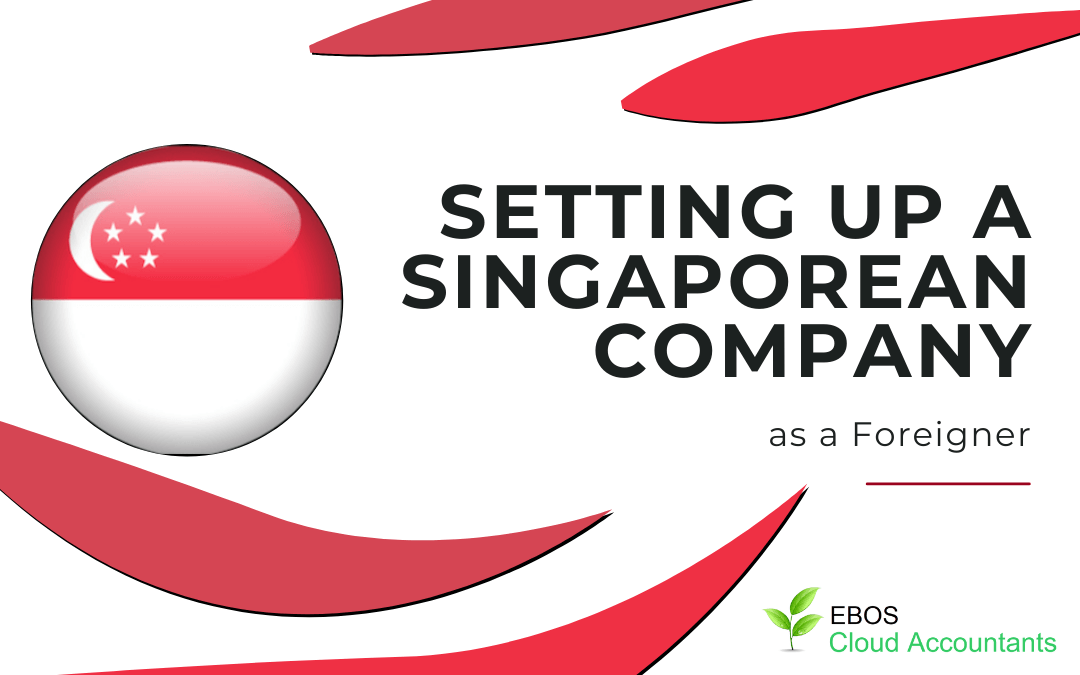Setting up a company in Singapore is not easy, particularly if you are from overseas. There are many reasons why it is beneficial to set up a company in Singapore—the presence of a branch company in a well-known location, localised laws that may differ from your original country’s, and the presence of a robust support network for local businesses are just some of the reasons why Singapore is a fantastic location for setting up a company.
This blog post will guide you through the process of setting up your company as a foreigner and also provide some tips on what to do after the setup is complete. The easiest way is to work with company incorporation services in Singapore so that they can handle a lot of the work on your behalf, especially if you are not physically in Singapore.
Residency Requirements and Other Legal Considerations
We make a distinction between two categories:
1. A foreign organisation (business, brand, etc.) that would like to establish themselves officially in Singapore, or
2. A foreign person that wants to establish a local Singaporean company, but this new company does not yet exist anywhere else.
We make this distinction, because an organisation is different from an individual.
Organisations will need to appoint individuals to serve as the local directors, representatives, etc. for the company; this can usually be done via local hiring. On the other hand, a foreign person may need to appoint an additional representative based on the type of company they are trying to build.
This blog post assumes the reader is an:
– individual,
– a foreigner to Singapore (i.e., not a Singaporean citizen or Permanent Resident; including everyone in Singapore on a work pass), and
– aiming to start a business in Singapore.
First, we establish the different types of relevant companies available in Singapore.
Types of Companies
The three major types that can be considered for this purpose are the sole proprietorship, the partnership, or the private company.
Sole proprietorships mean that there is only one owner to the business, and the owner will be legally liable for the business itself. While foreigners may apply for a sole proprietorship, they will need to appoint a Singaporean resident (citizen, Permanent Resident, or EntrePass holder) as an authorised local representative, which means that all legal paperwork will fall to this local representative as well.
On top of the local representative, you will also need to engage a firm like EBOS to file the appropriate paperwork with the government as you will not have access to file it yourself as a foreigner.
Partnerships consist of more than one owner. If one partner is a Singaporean resident (citizen, PR, EntrePass holder), then it can be registered without issue in Singapore. However, if all partners of the business are foreigners to Singapore, then like the sole proprietorship an additional authorised representative must be appointed.
Both the sole proprietorship and partnership do not create a separate legal entity for your business; that is, all owners and registered partners are directly, personally legally responsible for the state of the business. To create a separate legal entity, a private company should be created.
Creating a private company (also referred to as private limited, or Pte. Ltd.) is a little more tedious but provides shareholders protection from any debts that cross the contributed capital amount. Primarily, one of the registered directors must be a Singaporean resident (citizen, PR, EntrePass holder). As many foreign directors can be appointed as desired.
Summary of Process
For foreigners with limited experience in Singaporean company establishment, we recommend engaging a secretary company specialising in company incorporation services in Singapore to ensure that the appropriate paperwork can be filed. If you do this, the secretary company will guide you through the entire process for peace of mind.
However, you can in fact establish a private company in Singapore by applying online with the local director’s SingPass, and this process is briefly outlined as follows:
1. Figure out the specific details (e.g. shares and shareholders, paid-up capital amount, who will be the director). These questions will be available on the form to be filled, so you can simply refer to those. A secretary will also need to be appointed, although it does not have to be at the point of filing.
2. On the ACRA Bizfile website, navigate to the section for either starting a business (sole proprietorship or partnership) or for starting a local company (private limited). You will be prompted to log in with something called a SingPass, which is an access that only Singaporean residents have.
3. Navigate the ACRA website’s form for filing a business or company, filling in the information you’ve prepared from #1. Pay the fees as directed, which vary depending on the options selected. Once submitted, wait for approval.
4. Once approved, further instructions will be sent to the email of the SingPass owner in terms of what next to do.
In summary
If you’re thinking about starting a company in the near future and want to be sure that it is set up legally sound from day one, contact an secretary company with experience in setting up new business entities. Companies like ours can help your company navigate the legal ramifications of being incorporated as well as any other necessary steps for success. If you have any questions along the way or need some advice on how to best structure your entity according to Singaporean law, we will also be able to provide guidance.
With all that said, we hope this overview has been helpful!







